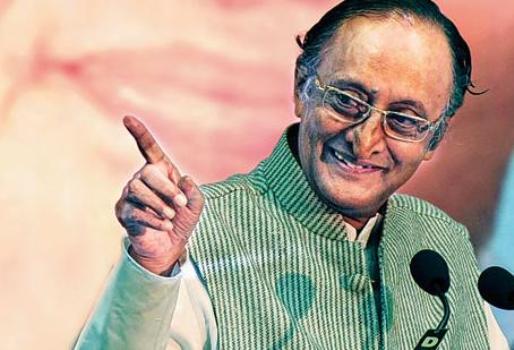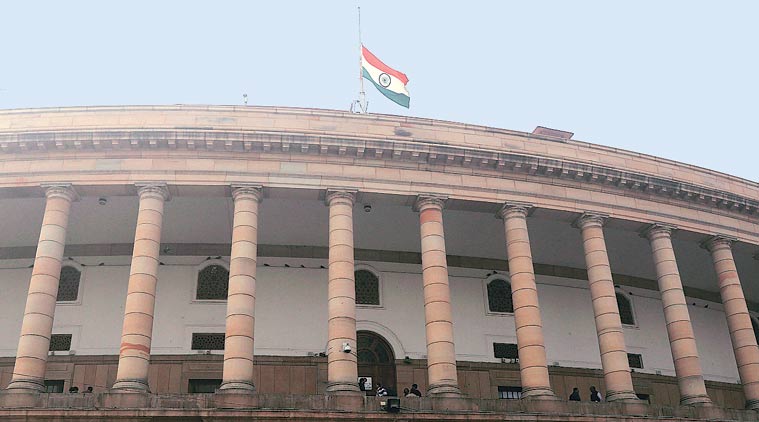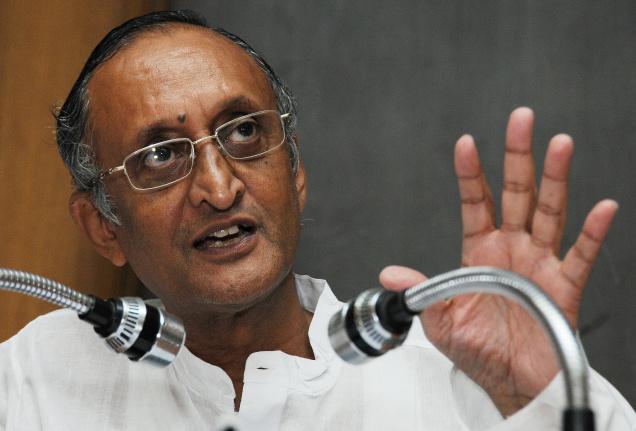Expressing concern over declining goods and services tax (GST) revenue, West Bengal’s finance minister Amit Mitra on Thursday said that states are facing a revenue shortfall of Rs 39,111 crore in the four months after the July 1 roll-out.
The government had anticipated a revenue shortfall of Rs 55,000 crore, which was expected to be recovered through the compensation cess levied on luxury and sin goods, but now the revenue gap is expected to widen to Rs 80-85,000 crore for the whole financial year, Dr Mitra said.
“Revenue of Rs 43,013 crore per month was to be protected for states. For all states for four months, we needed Rs 1.72 lakh crore for revenue protection. What have we got? Rs 1.33 lakh crore. That means there is a revenue protection shortfall of Rs 39,111 crore in the (first) four months,” Dr Mitra said at the annual general meeting of FICCI.
Dr Amit Mitra was participating in a session on GST with the finance ministers of Jammu & Kashmir and Bihar.
জিএসটিতে বিদ্ধ ছোট শিল্প: অমিত মিত্র
সেপ্টেম্বরে জিএসটি থেকে আয় হয়েছিল ৯৫,১৩১ কোটি টাকা। অক্টোবরে তা নেমেছে ৮৩,৩৪৬ কোটিতে। ছোট ও মাঝারি শিল্পগুলি সমস্যায় পড়েছে বলেই এই ছবি ফুটে উঠছে বলে অভিযোগ তুললেন অমিত মিত্র।
বৃহস্পতিবার ফিকি-র বার্ষিক সাধারণ সভায় পশ্চিমবঙ্গের অর্থমন্ত্রীর দাবি, ‘‘জিএসটি-র রাজস্ব আয়ের পরিসংখ্যান নিয়ে স্বচ্ছতা নেই। কিন্তু বাস্তব হল, এক মাসে প্রায় ১২ হাজার কোটি টাকা আয় কমেছে। প্রক্রিয়াগত জটিলতায় ছোট-মাঝারি সংস্থাগুলি রিটার্ন ফাইল করতে পারছে না। উৎপাদনও ৪০% মার খেয়েছে।’’
অমিতবাবুর হিসেব, জিএসটি-তে রাজ্যগুলির প্রথম চার মাসে রাজস্ব আয়ে ঘাটতির পরিমাণ প্রায় ৩৯,১১১ কোটি টাকা। রাজ্যগুলি কেন্দ্রের থেকে ক্ষতিপূরণ পেয়ে যাবে। কিন্তু এর ফলে কেন্দ্রের আয় নিয়েও চিন্তার কারণ রয়েছে। তাঁর দাবি, ধরা হয়েছিল, চলতি অর্থবর্ষে ৫৫ হাজার টাকা ক্ষতিপূরণ দরকার হবে। তা প্রায় ৯০ হাজার কোটিতে পৌঁছবে।
অমিতবাবুর যুক্তি, জিএসটি-র বাইরে থেকেই রাজ্যগুলির গড়ে ৪০% আয় হয়। জিএসটি-ব্যবস্থা স্থিতিশীল না হওয়া পর্যন্ত পেট্রোল-ডিজেলকে এর আওতায় আনা উচিত নয়।



